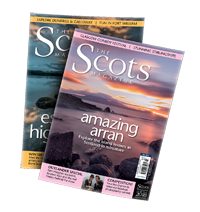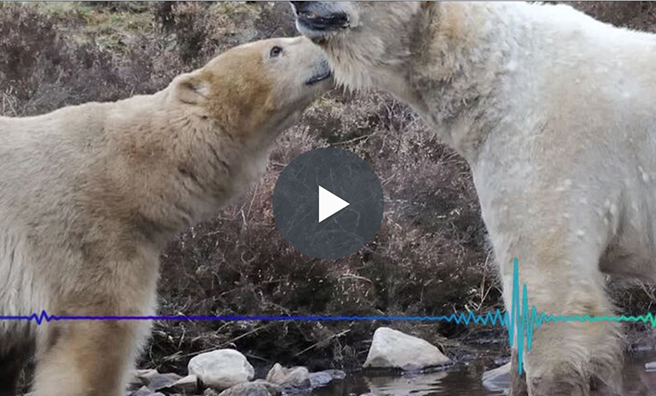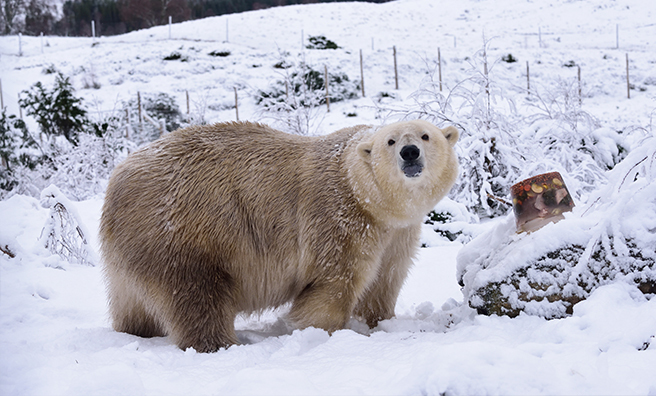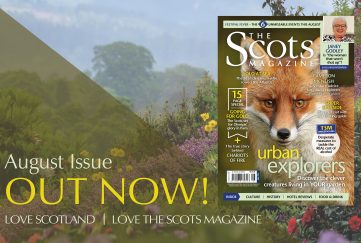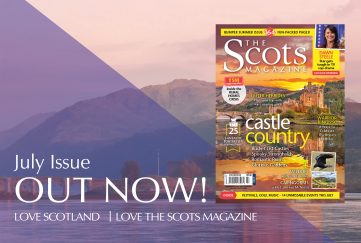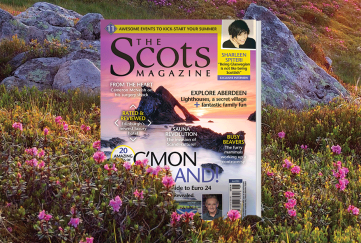First UK Polar Bear Cub in 25 Years – At Scottish Zoo!
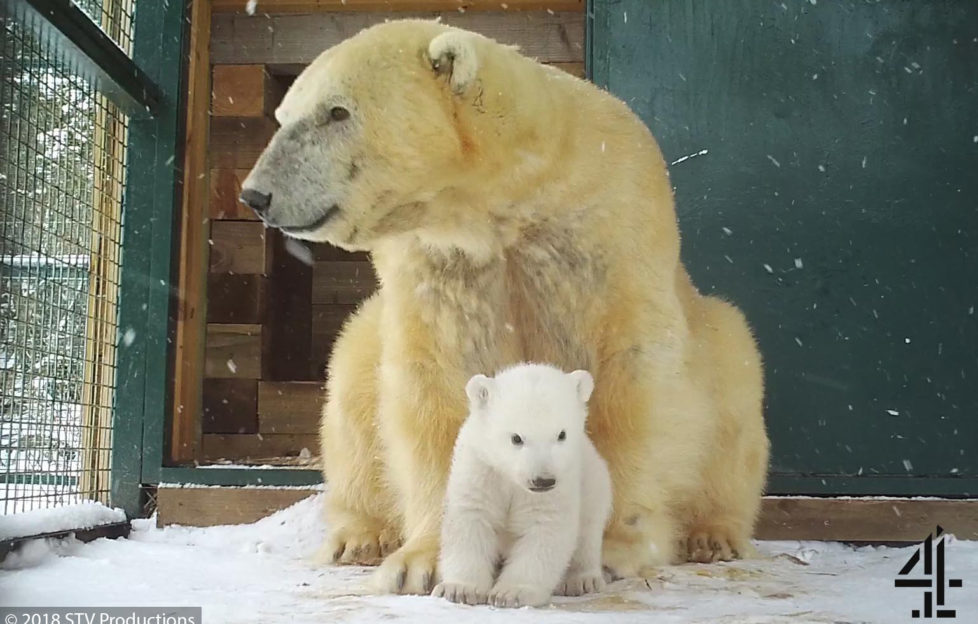
The first polar bear cub to be born in the UK for 25 years has emerged
Highland Wildlife Park‘s resident polar bear, Victoria, gave birth one week before Christmas at the Kincraig park, near Kingussie.
On Sunday, March 4, Victoria emerged from her den with the new cub in tow for the first time.
The Royal Zoological Society of Scotland (RZSS) made the announcement this morning, and described the birth as an “outstanding achievement which will have interest across the world.”
Una Richardson, head keeper responsible for carnivores, said, “Victoria had started to come outside by herself for short periods to eat, drink and roll around in the snow, so we knew her cub would soon follow her but we couldn’t be sure when.
“I was visiting Victoria on Sunday morning to check she had fresh water and to continue slowly reintroducing food to her diet, after four months during which she lived solely off the fat reserves she built up before she entered her den.
“Suddenly I saw a small, fluffy bundle next to her and had to pinch myself to check I wasn’t seeing things. It was a very special experience and one I’ll never forget.”
One cub or more?
Before Sunday’s appearance staff couldn’t confirm how many cubs had been born or how they were doing.
“Polar bear cubs have a high mortality rate in the first weeks of life,” Una said,”due to their undeveloped immune system and the mother’s exaggerated need for privacy. Any disturbance risks the cub being killed or abandoned.”
As you can imagine, it’s been a tense few months for the staff at the Highland Wildlife Park.
“Both mum and cub appear to be doing well, though this is still a sensitive time and they need as much peace and quiet as possible. Our keeper activity at their enclosure will remain at a minimum for the next couple of weeks, after which visitors will be able to see Victoria and our wonderful new arrival.
“In the coming weeks we’ll also be able to find out if we have a little boy or girl and then we’ll decide on a name.”
Cameras have been positioned outside Victoria’s den since early February. This unprecedented access is for a forthcoming documentary for Channel 4 by STV Productions.
Britain’s Polar Bear Cub airs on Channel 4 at 7pm on Sunday 18 March. In the meantime, audio has been released of the new cub’s first cries, which you can listen to below.
Global Significance
Douglas Richardson, Head of Living Collections at RZSS Highland Wildlife Park, said the birth was of global importance.
“The arrival of a polar bear cub is a tremendous husbandry accomplishment for our team.
“When Victoria arrived here in 2015 it was another tangible step in RZSS developing a new method of captive polar bear management, by providing a naturalistic habitat in a climate that is not so different from the one they have evolved to cope with.
“This success has been based on a radically different approach to their care and husbandry to mirror what would happen in the wild.”
RZSS Chief Executive, Barbara Smith continued, “The birth of the first polar bear cub in the UK for a quarter of a century is an outstanding achievement which will arouse interest around the world. It is testament to the commitment and professionalism of our team and hugely exciting.
“At RZSS we believe we have a duty to help protect this magnificent species, with the reduction in sea ice, the polar bear’s primary seal hunting platform, predicted to significantly reduce numbers over the next 40 years.
“Our polar bears are part of the European Endangered Species Programme and we hope Victoria’s offspring will survive to reinforce the captive population, which may be needed in the future to augment and help restore a markedly reduced and fragmented wild population.”
Find out more about Scotland’s only polar bears here
Polar Bear Facts
New-born polar bear cubs are blind, around 30cm long and weigh little more than a guinea pig.
They only open their eyes when they are a month old and are entirely dependent on their mother, feeding on fat-rich milk to grow quickly.
By the time they leave their dean they weigh around ten to 12 kg.

